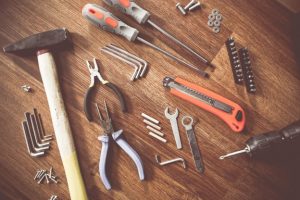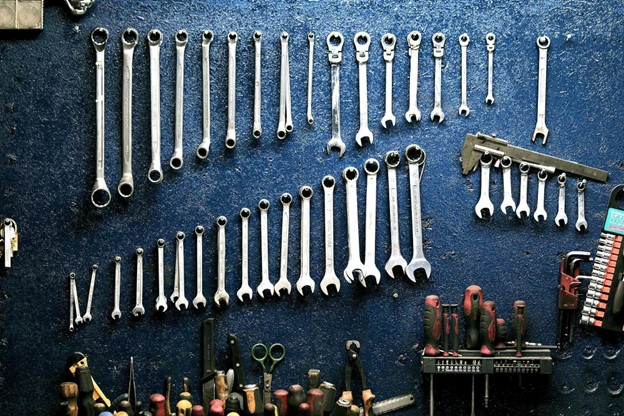Whether you’re a professional craftsman or simply enjoy doing DIY projects, working with small and delicate tools can be challenging. From precision screwdrivers to tiny pliers, these tools require careful handling and attention to detail. The last thing you want is for them to break or get misplaced in the middle of a project.
That’s why we’ve put together six useful tips to help you manage working with small and delicate tools. These tips will not only ensure the longevity of your tools but also make your work more efficient and enjoyable. Let’s get started.
Learn About Your Tools
Before you start using any small and delicate tool, it’s important to take some time to learn about its specific functions and features. This will not only help you understand how best to use the tool but also prevent any potential accidents or damage.
Make sure to read the manual or watch tutorials if available. For instance, you can consider reading blogs defining a coach bolt and a coach screw to understand the differences and which tool would be suitable for your project. Additionally, learning about maintenance and cleaning procedures will also ensure the longevity of your tools. Ensure that you are familiar with your tools before using them to avoid any mishaps.
Keep Your Tools Organized
One of the biggest challenges of working with small and delicate tools is keeping them organized and easily accessible. To ensure efficiency and prevent any misplaced tools, consider investing in a toolbox or a tool organizer. This will not only keep your workspace clutter-free but also protect your tools from damage.
Moreover, labeling and categorizing your tools can also be helpful. For example, you can have a separate section for pliers and another for screwdrivers. This will save you time searching for the right tool and make your work more streamlined. By keeping your tools organized, you’ll be able to focus on your project without any distractions.
Store Them Properly
Proper storage is crucial for the maintenance of small and delicate tools. When not in use, make sure to store them in a dry and dust-free environment. You can also consider using cases or pouches specifically designed for storing these tools. Avoid leaving them lying around on your workbench where they can easily get damaged or misplaced.
Additionally, make sure to clean and dry your tools before storing them to prevent rust or corrosion. By storing your tools properly, you’ll not only keep them in good condition but also save yourself from the hassle of constantly replacing them.
Use the Right Pressure and Technique
When working with small and delicate tools, it’s important to apply the right amount of pressure and use the correct technique. Too much pressure can break or damage the tool, while too little pressure may not get the job done effectively.
Make sure to hold your tools properly and use a steady hand while working. This is especially important when using tools like precision screwdrivers that require a delicate touch. It’s also helpful to take breaks and stretch your hands and fingers, as using these tools for extended periods can strain your muscles. By using the right pressure and technique, you’ll not only protect your tools but also ensure precise and efficient work.
Take Regular Breaks
Working with small and delicate tools can be physically and mentally taxing, especially if you’re working on a detailed project. Taking regular breaks is essential to prevent burnout and maintain focus and accuracy.
Consider setting a timer for every hour or so and taking a short break to stretch, hydrate, and rest your hands and eyes. This will not only help prevent any muscle strain but also give your mind a break from intense concentration. By taking regular breaks, you’ll be able to work on your projects for longer periods without feeling fatigued.
Invest in Quality Tools

Last but not least, investing in quality tools is essential for managing small and delicate tools effectively. While it may be tempting to go for cheaper options, investing in high-quality tools will save you time, money, and frustration in the long run.
Quality tools are made with durable materials and designed for precision work, making them less likely to break or require frequent replacements. They also come with warranties and proper maintenance guides, ensuring their longevity. By investing in quality tools, you’ll not only have a better working experience but also produce better results in your projects.
Working with small and delicate tools requires attention to detail, proper handling, and organization. By following these six useful tips, you can ensure the longevity of your tools and make your work more efficient and enjoyable. Remember to learn about your tools before using them, keep them organized and properly stored, use the right pressure and technique, take regular breaks, and invest in quality tools.
Image Source: https://www.pexels.com/photo/set-of-tool-wrench-162553/

